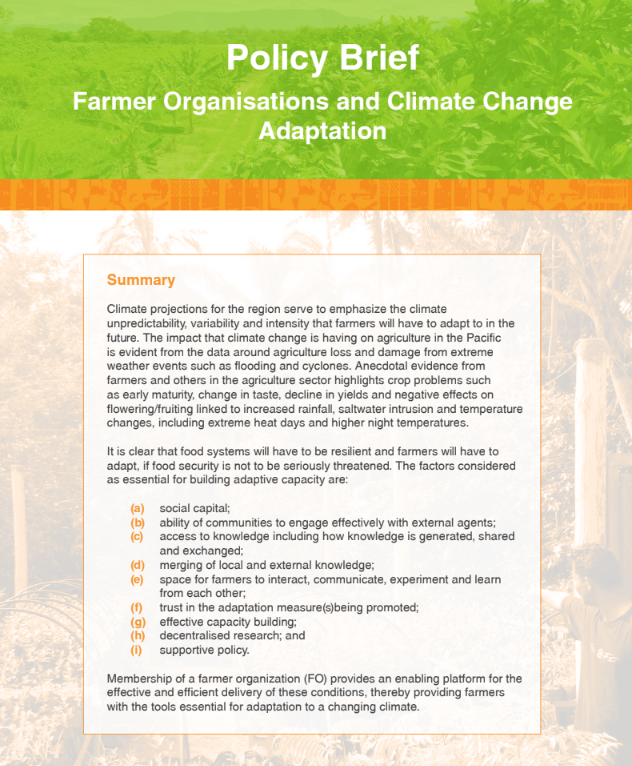Farmer Organisations and Climate Change Policy
Climate projections for the region serve to emphasize the climate unpredictability, variability and intensity that farmers will have to adapt to in the future. The impact that climate change is having on agriculture in the Pacific is evident from the data around agriculture loss and damage from extreme weather events such as flooding and cyclones. Anecdotal evidence from farmers and others in the agriculture sector highlights crop problems such as early maturity, change in taste, decline in yields and negative effects on flowering/fruiting linked to increased rainfall, saltwater intrusion and temperature changes, including extreme heat days and higher night temperatures.
It is clear that food systems will have to be resilient and farmers will have to adapt, if food security is not to be seriously threatened. The factors considered as essential for building adaptive capacity are:
(a) social capital;
(b) ability of communities to engage effectively with external agents;
(c) access to knowledge including how knowledge is generated, shared and exchanged;
(d) merging of local and external knowledge;
(e) space for farmers to interact, communicate, experiment and learn
from each other;
(f) trust in the adaptation measure(s)being promoted;
(g) effective capacity building;
(h) decentralised research; and
(i) supportive policy.
Membership of a farmer organization (FO) provides an enabling platform for the effective and efficient delivery of these conditions, thereby providing farmers with the tools essential for adaptation to a changing climate.

